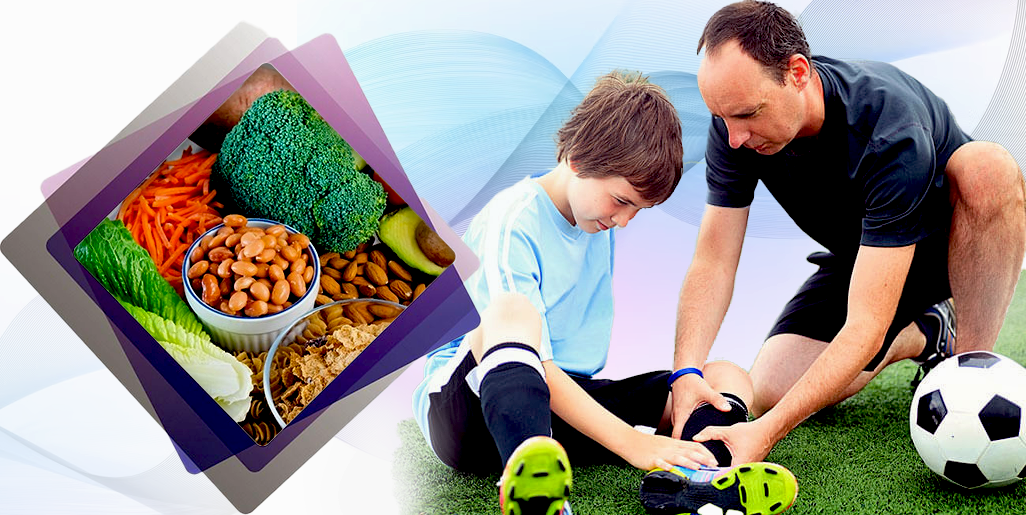Make An Appointment
For emergency Case
Booking A visit
Nutrition Dietary Tips for Sports Injury Recovery
Though the healing process following an injury sustained from sports may not be an easy one, a proper diet helps speed recovery as well as the return to one’s normal strength. Of course, procedures like stem cell therapy have become extremely popular in terms of hastening recovery, however, the first step to healing starts with your diet. Let us therefore look at what you ought to eat and what you should avoid for a nutrient-dense diet.
What You Should Eat to Aid Recovery
For your body to heal damaged tissues, reduce inflammation, and regain strength, it needs an extra dose of nutrients. You can recover faster by adding these foods to your diet:
Foods Rich in Protein: Your body will need protein to repair damaged muscles and tissues. Ensure that you have lean meats such as
- Chicken
- Turkey
- Fish like salmon, eggs,
plant-based foods like tofu, beans, and lentils in your meals for a healthy lifestyle.
Omega-3 Fatty Acids: These healthy fats promote healing and reduce inflammation. Eat fatty fish like mackerel or sardines at least once a week and snack on walnuts, flaxseeds, or chia seeds.
Vitamin C Foods: Vitamin C enhances the formation of collagen. It is required for healing tendons and ligaments. For instance,
- Bell peppers
- Broccoli
- Strawberries
- Citrus fruits
You should include these foods in your diet to aid recovery.
Iron-rich foods: You can keep your iron levels very high, which can accelerate the healing rate from anemia, with the assistance of lean red meat, spinach, quinoa, and fortified cereals.
Bone-building foods: If you are breaking bones because of the injury, then calcium and vitamin D need to be adequately achieved. Bones can be strengthened by food items such as milk, yogurt, almonds, and fortified orange juice.
Hydration foods and fluids: hydration has to be adequate. Other than hydration, watermelon, cucumbers, and soups serve the purpose of nutritional replenishment.
Foods Not to Eat
Some foods can slow down healing by contributing to inflammation or not being able to be absorbed. What not to do are the following:
Sugary Snacks and Drinks: Soda, candy bars, and cookies conduce to inflammation and delay healing.
Refined Carbs: Pastries, pasta, and white bread contain fewer nutrients that are essential for your body to recover from. Use their whole grain counterparts instead.
Excessive Salt: Consumption of food high in sodium, like potato chips or canned soups, causes dehydration and will impair recovery.
Alcohol: Interference with the synthesis of proteins can have a detrimental impact on the recovery process.
Processed Meats: Chemical preservatives present in prepared meats such as sausages and hotdogs activate inflammation mostly.
How Nutrition Impact Sports Injury Recovery?
A good diet has to be adhered to for the recovery of sports injuries. Foods rich in proteins, like lean meats and beans, will rebuild muscles and tissues. Anti-inflammatory foods such as fatty fish, nuts, and bright-colored vegetables reduce swelling.
Dairy and leafy greens provide necessary calcium and vitamin D for healing bones. Zinc and vitamin C help in stimulating collagen synthesis for ligament and tendon healing. Oxygen delivery and cellular repair are facilitated by iron and B vitamins. Carbohydrates give you energy to heal.
A well-structured diet together with sufficient hydrating fluids improves the immune strength, which should reduce the prospects of complications; in addition, a diet enriched with nutrients from food, and proper medical treatments, will eventually help athletes experience fewer setbacks or recover faster for easier return back to top performance levels.
How does Stem Cell Therapy help?
An innovative way of handling sports injuries stem cell therapy encourages natural healing by repairing damaged cartilage, ligaments, and tendons. It restores functions, accelerates recovery, and lessens inflammation. In that regard, this is one of the most advanced methods suitable for athletes, as it offers a non-invasive substitute for surgery, allowing you to return to competition more quickly. If you want to learn more about stem cell therapy, you should book a consultation with our experts at Global Stem Cell Care to find out if this treatment is for you.
